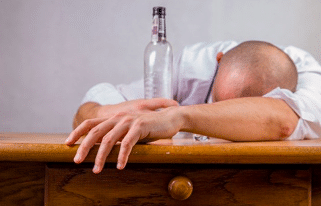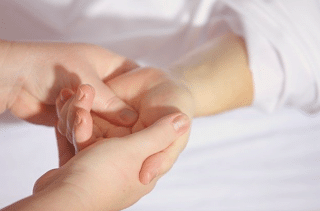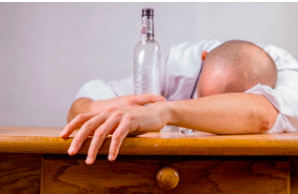Addiction to drugs is complicated, and no single treatment is appropriate for everyone. Start by assessing your physical state and ensuring that you’re secure and stable. You can arrange an appointment by calling or chatting with baton rouge detox centers anytime. Their specialists will do a complete examination of you, including inquiries about your medical history, drug use, and any other mental concerns you’re dealing with.
If you choose to receive treatment at detox centers in Baton Rouge, the staff will work with you to compose a plan that will match your specific needs. Recommended therapies (such as talk therapy and recreational therapy), medication management, health, and wellness education, and relapse prevention will all be a part of your detox plan. Both the patient and their loved ones may experience anguish and fear due to their drug addiction. However, you are not alone. Get the assistance you require right away.

Types of Substance Addiction
Tobacco Addiction
According to the National Institute of Drug Abuse, this is viewed as an addiction to tobacco goods that carry nicotine. Nicotine is an addictive substance that boosts dopamine, a neurotransmitter in the brain that makes you feel good and primes you for a reward.
According to the CDC, also known as the Centers for Disease Control and Prevention, millions of adults in the U.S. smoked cigarettes in 2019. Additionally, in the United States, it is also the most significant cause of preventable disease, disability, and death.
Prescription drug addiction
Prescription drug abuse includes:
- Taking a higher dose than prescribed.
- Utilizing someone else’s prescription.
- Taking medication to get high.
Opioids and stimulants like amphetamines and central nervous system depressants like sedatives and tranquilizers are examples of often misused prescription medicines. According to the NIDA, also known as the National Institute on Drug Abuse, 18 million Americans misused prescription drugs at least once in the previous year in 2017. Young adults aged 18 to 25 were likely to have the highest rate of medication usage.
Cannabis addiction
When a person stops smoking marijuana, they develop withdrawal symptoms, referred to as cannabis use disorder (CUD). In other words, it’s regarded as a dependence when your brain responds to high doses of the drug and reduces sensitivity and production of its neurotransmitters, making it challenging to experience a pleasant “high” without it.
When cannabis use interferes with crucial elements of your life, such as employment and relationships, you have a cannabis addiction. According to the NIDA or National Institute on Drug Abuse, a person can have a cannabis dependence but not an addiction.
Methamphetamine addiction
This is covered under the umbrella of prescription drug misuse and involves the overuse of stimulant medications, such as Desoxyn and the street narcotic known as crystal meth. According to the U.S. DEA, stimulants are classed as Schedule II prohibited narcotics, implying they have limited medical value and a high risk of addiction. As per the National Institute on Drug Abuse (NIDA), 964,000 Americans had a methamphetamine use disorder in 2017.

Types Of Treatment
Individual treatment regimens are adapted to the specific needs and circumstances of each individual. Individuals in recovery are actively participating in the most effective treatment programs at every stage.
Inpatient Rehab
Inpatient treatment centers offer structured treatment plans that address all facets of an individual’s addiction. Inpatient rehab patients live in a drug-free environment with 24-hour medical and therapeutic care. Inpatient treatment is best for people who have a persistent addiction and a co-occurring mental or behavioral disorder.
Outpatient Rehab
Outpatient rehab is another sort of comprehensive addiction treatment. Inpatient rehab programs offer many of the same successful treatments and therapies as outpatient rehab programs. Outpatient rehabilitation, on the other side, enables patients to rehabilitate at home. Patients can proceed to work and care for their families while attending regular treatment sittings throughout the week.
It’s essential to keep in mind that outpatient rehabs do not quarantine patients from the rest of the world. As a result, patients are more likely to be confronted with triggers that jeopardize their recovery. Therefore, outpatient treatment centers are excellent for persons with minor addictions and wish to take a serious, disciplined approach to heal. Outpatient programs, usually combined with sober living homes, are also a good “step-down” option after inpatient treatment.
Detoxification
Detoxification is a procedure that helps people safely withdraw from drugs or alcohol until they are free of them. It is usually the initial step in treating those who are recovering from moderate to severe addictions. Detoxing from certain narcotics may necessitate medication-assisted therapy to reduce the intensity of withdrawal symptoms. During detox, medications are frequently tapered down until the patient is no longer physiologically dependent on addictive substances.
Treatment with Medication
When paired with behavioral therapy, medication can play a crucial role in recovery. Professionals can use certain drugs to help with cravings, mood, and addictive tendencies. For example, the FDA recently approved lofexidine to help patients seeking opioid addiction treatment lessen cravings and withdrawal symptoms. Acamprosate, for instance, is a medication that can assist people in stopping drinking.
You don’t have to fight addiction alone if you or a loved one is suffering from one. Speak with a medical expert. There are effective treatments that can assist you in overcoming your addiction.
Rehabilitation Therapy
It involves effective withdrawal management and detox completion that will allow you to focus more on your long-term recovery, including the rehabilitation phase. Through extensive counseling and therapy, you can address the underlying issues that are creating your addictions. This is when patients address the underlying causes of their addictions, allowing them to move on with their lives without resorting to drugs, alcohol, or other substances.

Takeaway
Substance-related disorders are chronic, multi-faceted illnesses that necessitate long-term, intense care. The type of substance and the intensity of the addiction will determine the treatment plan. Detoxification, which involves utilizing medicine to alleviate withdrawal symptoms as a substance departs the body, is frequently the first step in treatment. Treatment can also be aided by various types of behavioral therapy and counseling, which can assist in deprogramming particular drug-related behaviors and circumstances.
A person may be placed in a dedicated institution for a 6 to 12 month rehabilitation program. Following that, individuals may be placed in supervised housing while learning to manage their finances and look for work. In some persons, certain drugs can help manage long-term withdrawal symptoms and support sobriety.




